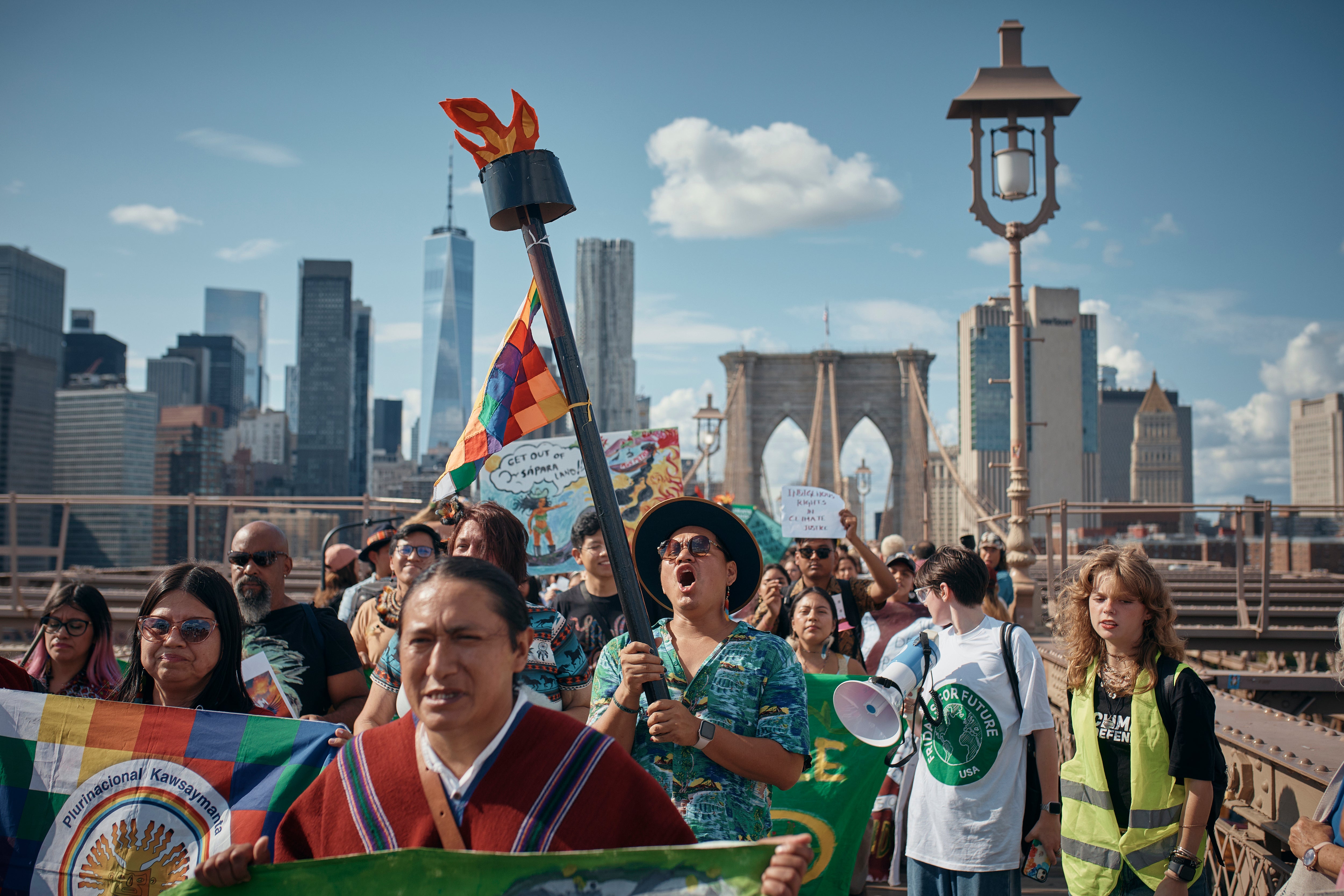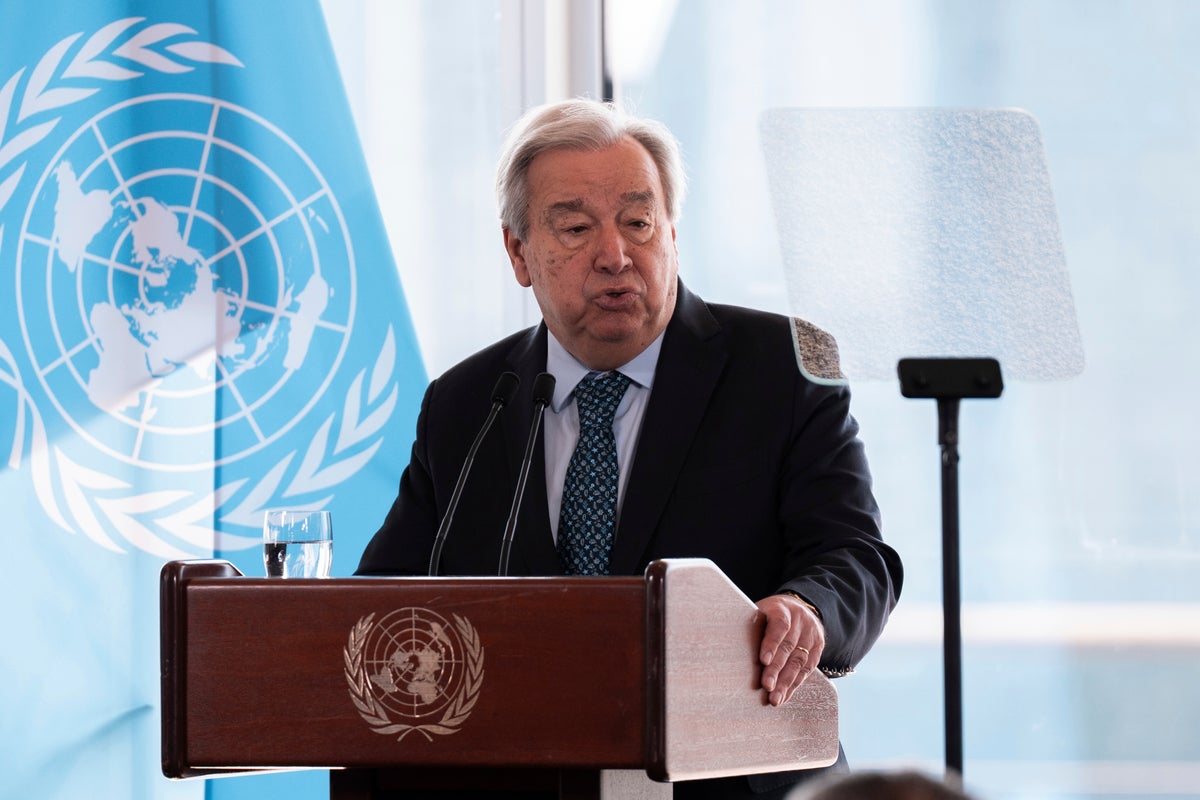The age of fossil fuels is nearing its end and a clean energy revolution is well underway, UN secretary-general António Guterres said on Tuesday, urging governments to accelerate the shift before it is too late.
“We are on the cusp of a new era. Fossil fuels are running out of road. The sun is rising on a clean energy age,” Mr Guterres said in a speech in New York.
“I have never been more confident that they will fail – because we have passed the point of no return.”
Backed by the latest figures from the International Renewable Energy Agency (IRENA), Mr Guterres said that renewables made up 92.5 per cent of new electricity capacity last year. Investment in clean energy reached $2 trillion in 2024 – nearly $800bn more than what flowed into fossil fuels.
“The clean energy future is no longer a promise. It’s a fact,” he said. “No government. No industry. No special interest can stop it.”
Despite his optimistic tone, the UN chief warned that the transition is still too slow and uneven, particularly in developing nations that lack access to finance and technology. He called on wealthy countries and major tech firms to lead the charge by committing to 100% renewable-powered operations by 2030.
“The energy transition is unstoppable,” he said. “But the transition is not yet fast enough or fair enough.”
The remarks marked a notable shift in tone from previous UN warnings that focused on the escalating dangers of global heating. This time, Mr Guterres framed the energy transition as an economic and security imperative.
“Countries that cling to fossil fuels are not protecting their economies – they are sabotaging them,” he said. “Driving up costs. Undermining competitiveness. Locking-in stranded assets. And missing the greatest economic opportunity of the 21st century.”
“There are no price spikes for sunlight. No embargoes on wind. Renewables mean real energy security. Real energy sovereignty. And real freedom from fossil-fuel volatility.”

More than 90 per cent of renewable energy projects today are cheaper than fossil fuel alternatives, according to IRENA. Solar power is now 41 per cent cheaper than the lowest-cost fossil fuel option, while onshore wind is less than half the price.
Still, major gaps remain. A UN report released alongside IRENA’s data warned that grid investment is failing to keep pace with the boom in renewables. For every dollar spent on clean generation, only 60 cents is going into infrastructure – when parity is needed to support the transition.
Critical mineral supplies also remain a concern, as do geopolitical tensions and trade disputes that could raise costs or slow momentum.
Yet Mr Guterres insisted the shift is already transforming lives – and holds vast potential for regions like sub-Saharan Africa and South Asia where energy access remains limited.
“You can’t build a coal plant in someone’s backyard,” he said. “But you can deliver solar panels to the most remote village on earth.”
Environmental groups welcomed the speech. Bill Hare, CEO of Climate Analytics, said: “Any investment in new fossil fuels now is a fool’s gamble, while joining the race to renewables can only bring benefits – not just jobs and cheaper energy at stable prices, but energy independence and access where it’s needed most.”
Shady Khalil, senior global policy strategist at Oil Change International, said the speech sent a clear signal that “the fossil fuel era is ending and the renewable energy transition is now unstoppable.” But he warned that “Global North countries like the US, Canada, Norway, and Australia are still gearing up for massive oil and gas expansion,” calling it “reckless and gluttonous short-termism” that would backfire on their economies.
Jacobo Ocharan, head of political strategies at Climate Action Network International, said Guterres was “on the money” in calling for a transition that delivers “equity, dignity and opportunity for all.”
He said COP30 must produce a roadmap “grounded in human rights, justice and equity” rather than remaining stuck in “the polluting and unfair past, which is where the fossil fuel industry wants us trapped.”
Mr Guterres called on countries to use their updated national climate plans – due in September – to slash fossil fuel subsidies and invest in clean energy. The message, he said, was not about sacrifice but smart economics.
“This is not just a shift in power,” he said. “This is a shift in possibility. This is our moment of opportunity.”



